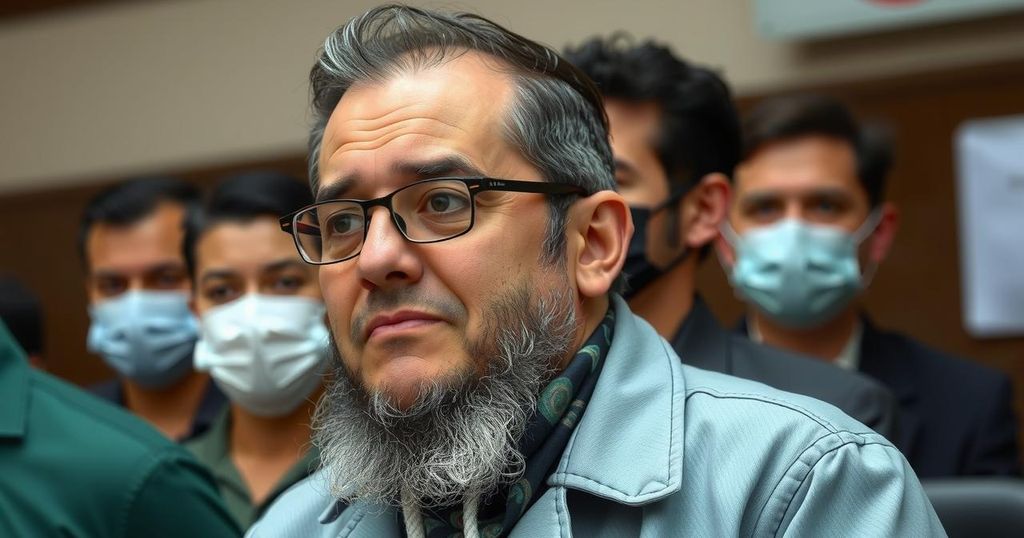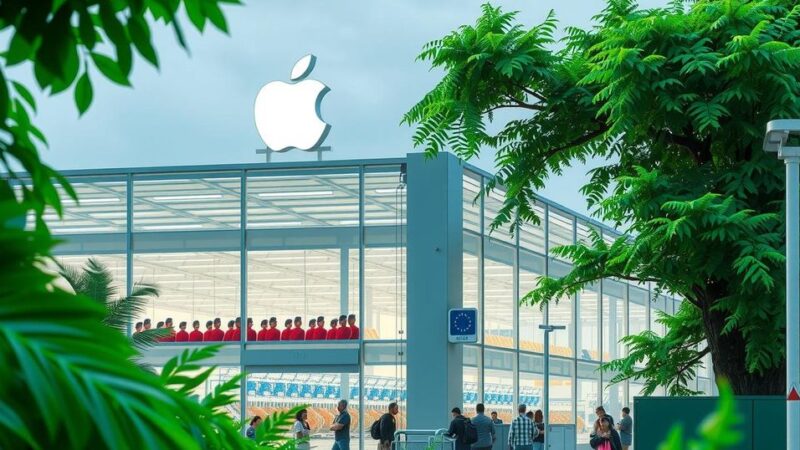A Moroccan activist, Said Ait Mahdi, has been sentenced to three months in prison for protesting government actions following a devastating earthquake that occurred in September 2023. His sentencing, deemed politically motivated by human rights advocates, highlights the ongoing struggles of the earthquake-affected populations. Protests continue across Morocco, demanding quicker and more effective recovery efforts, especially in marginalized regions.
Marrakech, Morocco (AP) — A prominent Moroccan activist, Said Ait Mahdi, has been sentenced to three months in prison due to his protests against the government’s response to the catastrophic September 2023 earthquake. Ait Mahdi, the leader of a notable activist group in the affected region, faces allegations ranging from defamation to inciting unauthorized protests. His case has drawn considerable attention from human rights advocates, who label the sentencing as arbitrary and politically motivated.
The earthquake, which struck the Al Haouz region, resulted in nearly 3,000 fatalities and rendered thousands of homes destroyed. With many citizens remaining in temporary shelters, protests have emerged, criticizing local authorities for their handling of recovery efforts. Despite Ait Mahdi receiving a relatively lenient sentence compared to typical cases, the Moroccan Association for Human Rights argues that his imprisonment is a retaliatory measure against his activism.
The situation highlights existing disparities in Morocco, particularly in regions inhabited by indigenous minority groups, where infrastructure inadequacies were further exacerbated by the earthquake. Following the disaster, the Moroccan government has pledged substantial funds for recovery efforts; however, frustration persists among affected populations regarding the pace of reconstruction activities.
In solidarity with Ait Mahdi, multiple protests have taken place throughout Morocco, culminating in significant demonstrations in the capital Rabat, calling attention to the pressing issues faced by earthquake victims and demanding justice and accountability from the government.
The sentencing of Said Ait Mahdi underscores the ongoing tensions in Morocco over government responses to natural disasters. The September 2023 earthquake, which devastated the Al Haouz region, has highlighted long-standing inequities in infrastructure and support for indigenous populations. As recovery efforts progressed slowly, widespread protests have challenged the government’s approach, with activists advocating on behalf of displaced individuals. The legal actions taken against Ait Mahdi reflect broader concerns regarding freedom of expression and the treatment of activists in the region, amidst claims of retaliatory measures for voicing dissent.
In summary, the imprisonment of activist Said Ait Mahdi signifies a troubling intersection of natural disaster response and political repression in Morocco. His case has sparked significant backlash from human rights organizations, who view it as evidence of attempts to stifle dissent and disregard for affected communities. As frustrations mount over government recovery efforts, the voices of activists advocating for victims’ rights become more critical, emphasizing the need for accountability and support in the wake of disaster.
Original Source: apnews.com






